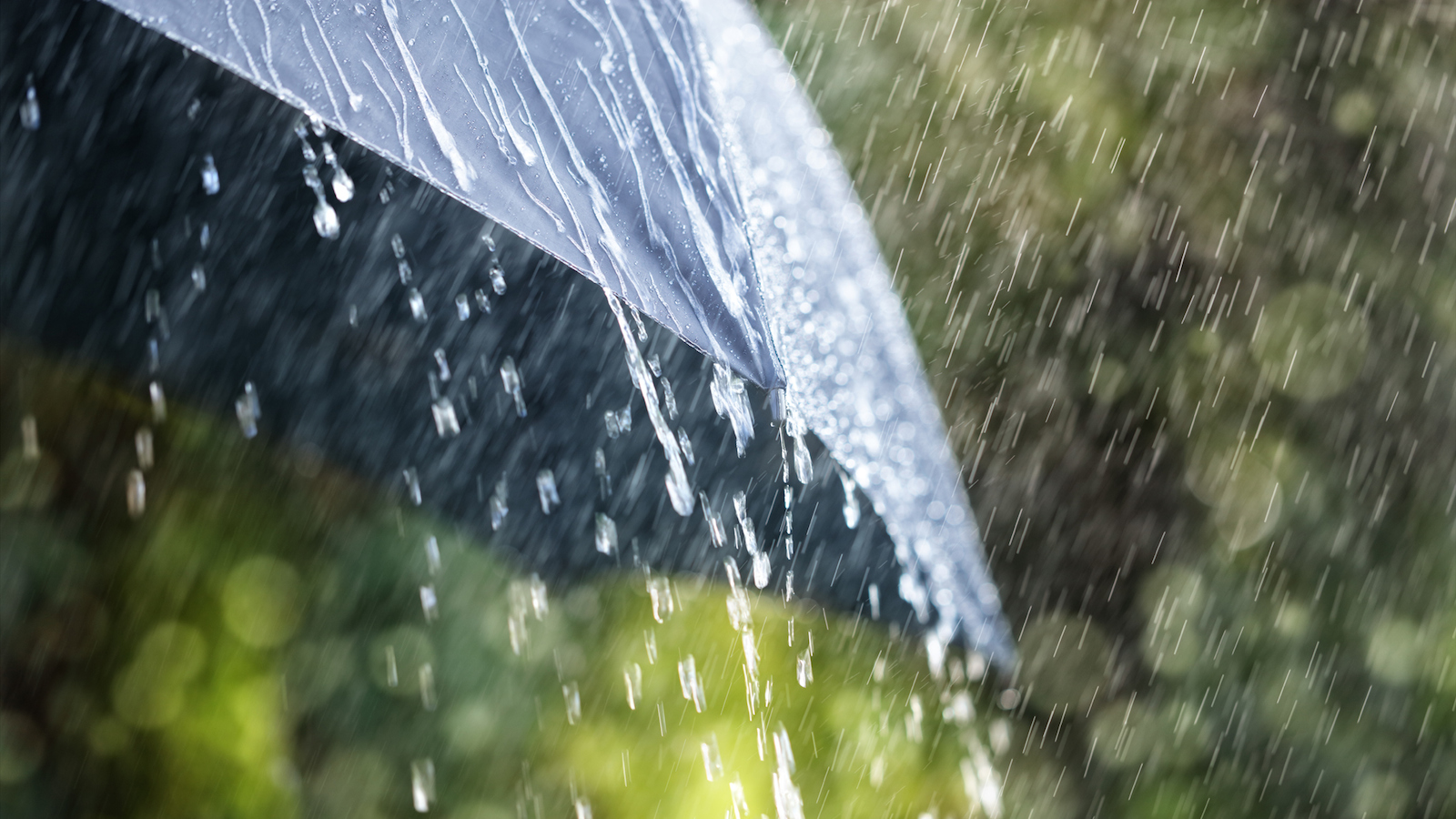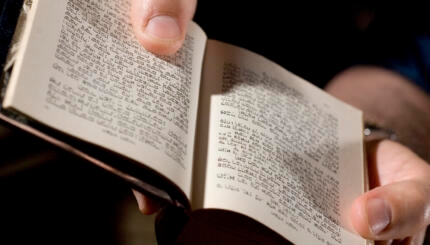Throughout Sukkot we hint at our desire for rain through such rituals as the water libation practiced in the Temple and the four species, particularly the willow, which represents the association of plant growth and water. Continuing with the water theme, a particular feature of Shemini Atzeret is the prayer for rain, thus officially beginning Israel’s rainy season. Since the land of Israel relies so heavily on substantial rain for its crops, the prayer for rain is recited with a special plaintive melody, and the cantor dons a white kittel (robe), as on Yom Kippur.
The prayer for rain corresponds to the prayer for dew (tal) that is said on the first day of Passover. Since the world is judged for rain at this time, according to the Talmud, it is proper to pray for rain at this time of the year. The prayer gives expression to the natural anxiety felt in Israel for the seasonal rain, the absence of which means famine, thirst, and disease. The prayer is delayed until Shemini Atzeret because it should not be invoked when fine weather is needed to enable us to dwell in the sukkah (Talmud, Sukkah28b).
The liturgy on Shemini Atzeret introduces the following phrase to be recited henceforth, until Passover, in the Amidah prayer–masheev ha’rua’ch u’moreed hagashem, “Who causes the wind to blow and the rain to fall.”
There are six parts of the prayer for rain, each of which refers to events involving water in the lives of Abraham, Isaac, Jacob, Moses, Aaron, and the Twelve Tribes. Here is a translation of the prayer for rain:
With your help, My Jewish Learning can provide endless opportunities for learning, connection and discovery.
Our God and God of our ancestors:
Remember Abraham who flowed to You like water.
You blessed him like a tree planted by streams of water.
You rescued him from fire and water.
He passed Your test by planting good deeds by every source of water.
For Abraham’s sake, do not keep back water.
Remember Isaac, whose birth was foretold when Abraham offered the angels a little water.
You asked his father to spill his blood like water.
In the desert Isaac dug and found wells of water.
For Isaac’s sake, do not keep back water.
Remember Jacob, who crossed the Jordan’s water.
He bravely rolled the stone off the mouth of the well of water.
He wrestled with an angel made of fire and water,
And therefore You promised to be with him through fire and water.
For Jacob’s sake do not keep back water.
Remember Moses, who was drawn in a reed basket out of the Nile’s water.
Who helped Jethro’s daughters: He drew water and gave the sheep water.
He struck the rock and out came water.
For Moses’ sake do not hold back water!
Remember Aaron, the High Priest, who, on Yom Kippur, washed himself five times with water,
He prayed and was sprinkled with purifying water,
He kept apart from a people who were as unstable as water.
For Aaron’s sake do not hold back water.
Remember the Twelve Tribes whom
You brought through the divided waters;
For whom You sweetened bitter water;
Their descendants’ blood was spilled like water.
Turn to us, God, who are surrounded by troubles like water.
For the Jewish people’s sake, do not hold back water.
You are Adonai, our God
Who causes the wind to blow and the rain to fall.
For blessing and not for curse. Amen.
For life and not for death. Amen.
For plenty and not for lack. Amen.
Read the Prayer for Rain in Hebrew on Sefaria.
Excerpted from Every Person’s Guide to Sukkot, Shemini Atzeret, and Simchat Torah. Reprinted with permission of the publisher. Copyright 2000 Jason Aronson, Inc.
Sukkot
Pronounced: sue-KOTE, or SOOH-kuss (oo as in book), Origin: Hebrew, a harvest festival in which Jews eat inside temporary huts, falls in the Jewish month of Tishrei, which usually coincides with September or October.



